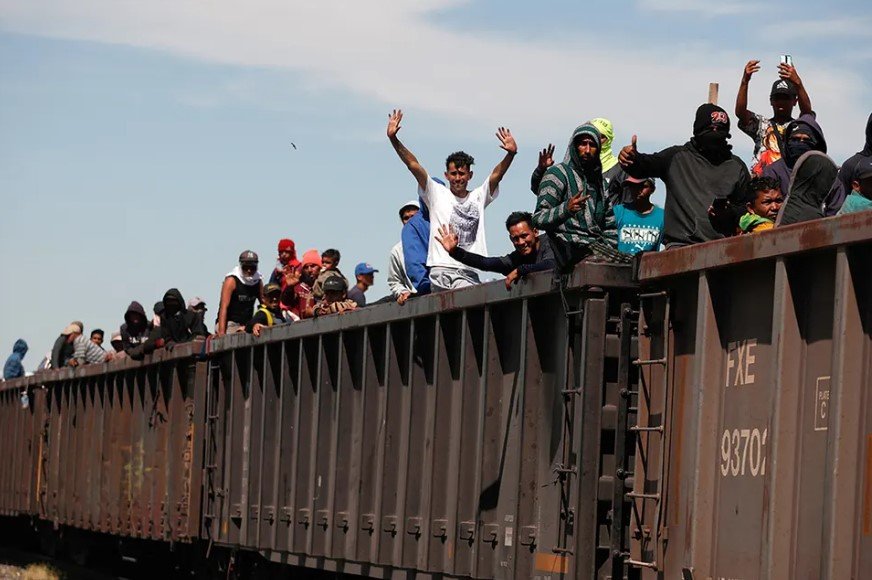Egypt’s National Railways launched its seventh special train on August 24, 2025, to help Sudanese nationals return home voluntarily from Cairo to Aswan. This move supports thousands fleeing Sudan’s ongoing conflict, showing strong ties between the two nations amid rising demand for safe travel options.
Initiative Aims to Ease Returns
The program started in July 2025, responding to improved security in parts of Sudan like Khartoum after the army regained control. Egypt’s government, led by Deputy Prime Minister and Minister of Transport Kamel El-Wazir, directed the railways to offer free or low-cost trips.
This effort builds on Egypt’s history of hosting over five million Sudanese people since the war began in 2023. Officials ramped up services from one train weekly to two, handling the surge in requests as more families seek to reunite.
Trains run from Cairo’s Ramses Station to Aswan’s High Dam Port, a 12-hour journey covering about 880 kilometers. From there, passengers switch to buses or ferries to cross into Sudan, reaching cities like Wadi Halfa or Khartoum.
Details of the Latest Trip
The seventh train left Cairo at 11:00 AM on August 24, carrying hundreds of families with their belongings. It arrived in Aswan by 11:30 PM, where support teams helped with the next leg of the journey.
This trip alone moved around 1,200 people, adding to a total of 6,668 returnees since the program began. Passengers included elderly folks, children, and those with disabilities, all getting extra help like priority seating.

Returnees shared stories of gratitude, noting how Egypt provided shelter during tough times. One family mentioned feeling safe enough to go back now that parts of Sudan show signs of stability.
The same train heads back to Cairo on August 25 at 8:20 PM, ready for more trips. This back-and-forth setup keeps the service running smoothly without delays.
Support and Safety Measures
Egypt’s railways added extra cars for luggage, easing the burden for families carrying household items. Staff offer aid to vulnerable groups, ensuring everyone travels comfortably.
Cooperation with Sudanese officials makes the process seamless, from ticket booking to border crossing. This ties into broader aid, like food and medical help at stations.
Key features of the trains include:
- Air-conditioned coaches for hot weather comfort.
- Onboard medical kits and staff trained for emergencies.
- Free water and snacks during the ride.
- Space for wheelchairs and family seating together.
These steps reflect Egypt’s push for humane returns, avoiding risks like sunstroke or accidents seen in past refugee movements.
Impact on Sudanese Communities
Over 6,000 people have returned so far, with numbers climbing as word spreads. This wave follows Sudan’s army advances, letting families rebuild in areas like Gezira and Sennar.
Many returnees fled war in 2023, facing hardships in Egypt. Now, with trains running twice weekly, more can afford to go back without high bus or flight costs.
Experts say this initiative cuts irregular migration risks and strengthens Egypt-Sudan bonds. It also eases pressure on Egypt’s resources, which have hosted refugees amid its own economic challenges.
A quick look at returnee numbers shows steady growth:
| Train Number | Date | Passengers |
|---|---|---|
| 1st | July 21, 2025 | ~800 |
| 2nd | July 28, 2025 | ~900 |
| 3rd | August 4, 2025 | ~950 |
| 4th | August 11, 2025 | ~1,000 |
| 5th | August 17, 2025 | ~1,050 |
| 6th | August 20, 2025 | ~1,100 |
| 7th | August 24, 2025 | ~1,200 |
This table highlights the program’s expansion, with each trip serving more people.
Challenges and Future Outlook
Not all returns are smooth, with some facing destroyed homes or ongoing unrest in Sudan. Aid groups warn of needs for rebuilding support once people arrive.
Egypt plans to keep trains running as long as demand stays high, possibly adding more if needed. Talks with international bodies could bring extra funding for better services.
This initiative stands out amid global refugee crises, like those in Syria or Ukraine, where safe returns remain rare. It offers a model for neighborly help in tough times.
As more Sudanese head home, the program not only solves travel issues but also brings hope for peace. Readers, share your thoughts on this story or similar efforts in comments below, and pass it along to spread awareness.
